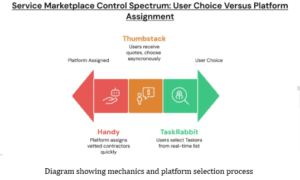Telemedicine has reshaped many aspects of healthcare, and medical cannabis care is no exception. Over the last several years, remote evaluations, digital patient registrations, and virtual follow-ups have made it easier for patients to complete the steps required to obtain a medical cannabis recommendation. This shift is driven by technology, regulatory adaptations, and mounting evidence that virtual care can reduce traditional access barriers for patients seeking medical cannabis.
Why The Access Matters In Telemedicine
While telemedicine has many other pluses, the most important one is access. In many cases, patients who would qualify for care are located at a significant distance from specialty clinics, have mobility limitations, or face transportation constraints, which act as barriers to seeking face-to-face care.
For some, discomfort or stigma regarding cannabis use in a formal clinical setting may create a barrier. Telemedicine eliminates many of those barriers. Patients can connect with licensed healthcare practitioners who provide medical cannabis evaluations online. It helps patients who are looking for alternative treatment options for chronic pain, anxiety, PTSD, or other qualifying conditions to get treated without unnecessary travel and stress.
How Online Information Affects Patient Access
The advent of telemedicine has changed not only how patients meet with their doctors, but also how they approach learning about medical cannabis. Patients have never had better access to credible information than they do today. Using state websites and educational websites enables patients to readily access and learn precisely what it takes to qualify for, register, and renew their medical marijuana card.
For instance, someone who is new to medical cannabis in Maryland might get the information about how easy it is to register and consult with a licensed provider online to receive their medical marijuana card in Maryland without ever leaving their home.
This new plethora of credible online resources has reduced confusion, misinformation, and stigma. Patients can now review verified patient testimonials. Webinars, online chats, and online blogs written by licensed physicians have helped remove uncertainty surrounding medical cannabis that once led to misconceptions regarding their choices. This new access to knowledge is reshaping medical cannabis into a patient-friendly experience.
Regulatory and Information Privacy Safeguards
Although convenience is essential, patient privacy and compliance are still the fundamentals on which telemedicine operates. Licensed providers must comply with state regulations governing the conduct and documentation of evaluations.
Telemedicine consultations must also comply with the Health Insurance Portability and Accountability Act (HIPAA), which requires that patient information be transmitted over an encrypted, secure system, meaning that an online evaluation has the same privacy protections as an in-person medical visit.
Patients using professional platforms can also verify the doctor’s credentials, confirm compliance with state law, and ensure their personal and medical information remains confidential throughout the process.
Know How It Benefits Patients And Clinicians
Telemedicine offers benefits beyond convenience and ease. Patients value quick consultations, the ability to choose appointment availability, and the option to renew their certifications without going to an office/clinic. For many patients with chronic conditions, virtual follow-ups make it easier to discuss how they are managing their current treatment, dosing, and potential side effects without disrupting their daily routine.
On the other hand, clinicians can serve more patients efficiently and provide high-quality care. Digital medical records improve documentation and compliance, while telehealth technologies enable providers to monitor outcomes and deliver patient education remotely. The result is that it saves time, reducing costs while focusing on comfort, continuity of care, and patient access.
Telemedicine and Challenges Associated
Even though most aspects are in favour of telemedicine, it does not come without challenges. Not every patient has access to dependable internet service, nor are they comfortable with virtual technology. Some states still have more strict rules regarding in-person visits or restrictions on which conditions can be evaluated online.
There is also a consistent need for educating patients, not only about how telemedicine works, but also how to safely and responsibly use medical cannabis. Healthcare systems, advocacy agencies, and state regulators are working together to bring advanced transparency, update systems, and ensure that patients and providers understand their rights and responsibilities.
Future of Medical Cannabis and Telemedicine
Telemedicine has crafted a new and compassionate era of accessible and safety-focused health care for patients seeking the medical benefits of cannabis. In the near future, it will evolve even further. The addition of features such as verification via digital IDs, automated renewals, and multilingual support will continue to improve the patient experience by seamlessly combining licensed medical oversight with the virtual world. Patients can receive care and professional certification without barriers or stigma.
More than a digital change, this shift is indicative of a healthcare system moving towards a medical model of truly patient-centered care, one that values privacy, compliance, and informed choice. For anyone considering the use of medical cannabis as part of their treatment, telehealth creates an enhanced, safe, convenient, and empowering connection for patients with trusted professionals and serves to put patients in control of their own health journey.



































